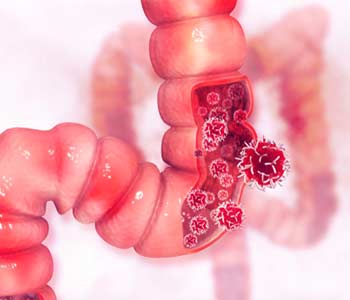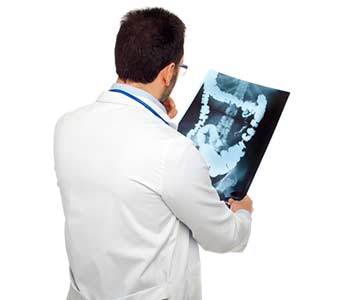Symptoms of colon cancer explained by a gastroenterologist in Brooklyn
Cancer is a dreaded disease that everyone hopes to avoid. Colon cancer is one of the most commonly diagnosed cancers for men and women in the United States, but fortunately, it is largely preventable with regular screening colonoscopies and is typically very treatable when it is caught at an early stage. If you are a patient in Brooklyn, NY, the team at Atlantic Gastroenterology lead by Dr. Alexander Shapsis can help you determine an optimal screening strategy for preventive care based on your risk factors. If you have symptoms of colon cancer, they can perform accurate diagnostic testing to determine whether you have the condition and work with you to navigate the next steps if any cancerous polyps or tumors are found.

Colon cancer explained
The origin of colon cancer is not entirely understood in all patients, but large studies have shown that there is an association between colon cancer and a Western diet that is low in fiber and high in fat. Researchers are looking into whether this type of diet causes inflammation or negatively impacts the bacteria that live in your intestines to increase the incidence of colon cancer.
Part of the normal cell lifecycle includes cell division to generate new cells. However, when cells in your colon develop genetic errors or mutations, they can start dividing and growing more rapidly than is needed by your body. They then start accumulating into masses in the body. In the case of colorectal cancer, the cells typically form a “polyp,” or growth inside the colon. There are different types of polyps and most begin as benign, or non-cancerous, growths. However, over time, if a polyp is left to grow, it can turn into a malignant, or cancerous, tumor.
What are the symptoms of colon cancer?

The symptoms of colon cancer vary by patient and not all of the symptoms may seem directly related to your gastroenterological health. As such, Dr. Alexander Shapsis and the team at Atlantic Gastroenterology recommend that you talk with your doctor about when and how often to get screening colonoscopies. Each individual patient has different risk factors, so the recommended starting age and frequency of screening for one patient may not be the same as another.
Symptoms of colon cancer may include:
- Changes in bowel habits
- Constipation or diarrhea
- Narrow stools
- Blood in the stool
- Red or black stools
- Cramping, abdominal pain, or bloating
- Fatigue
- Unexplained weight loss
- Shortness of breath
The location of cancerous polyps and tumors can cause different symptoms. For example, a tumor on the left side of your colon may cause symptoms such as narrowed stools, constipation, or abdominal pain because that part of your colon is narrower and a large growth such as a tumor can cause a blockage. However, you may not have any symptoms if you have an early stage of colon cancer, which is when it is most treatable, so it is important to get screened regularly even if you don’t have any symptoms.
It is also important to note that many of the symptoms of colon cancer are the same as the signs of other gastrointestinal diseases, such as Crohn’s disease, ulcerative colitis, irritable bowel syndrome (IBS), diverticulosis, or peptic ulcers. A board-certified gastroenterologist can discuss your symptoms and perform diagnostic testing to determine the cause of your symptoms and treat them to help you find relief.
Risk factors for colon cancer

People with one or more of the following risk factors may have a higher possibility of developing colon cancer:
- Age greater than 50 years old
- Inflammatory colon diseases such as Crohn’s disease or ulcerative colitis
- An individual history of polyps or colon cancer
- A family member who has had colon cancer
- A diet that is low in fiber and high in fat
- Inactive lifestyle
- Obesity
- Diabetes
- Smoking or heavy alcohol consumption
- African American race
Talk about your screening strategy with a board-certified gastroenterologist today
It is estimated that up to 90% of colon cancer deaths can be avoided if patients are appropriately screened. Whether you have any symptoms of colon cancer or are simply getting older, it is important to talk to a qualified gastroenterologist about scheduling a colon cancer screening test. More options for colon cancer screening are available than ever, so you will have a wide variety of tests to choose from. Call Atlantic Gastroenterology in Brooklyn, NY at 718 521-2840 to schedule an appointment today!
Share this Article
Back to Colon Cancer Page

